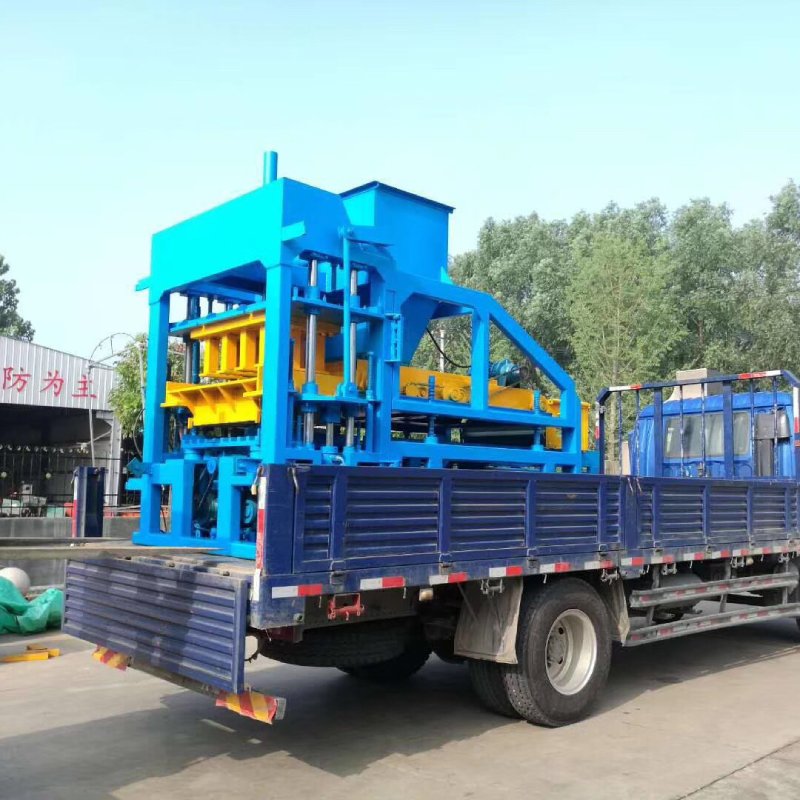
Image source:Aiwei block machine
Introduction
The Chinese brick making machine industry plays a crucial role in meeting the growing demand for bricks worldwide. However, the industry also faces challenges related to resource consumption, waste generation, and environmental impact. To address these challenges, industry partnerships have emerged as a vital strategy for promoting sustainable development in Chinese brick making machines. These partnerships bring together manufacturers, government agencies, research institutions, and other stakeholders to collaborate on innovation, technology transfer, and the implementation of sustainable practices. This article explores the importance of industry partnerships and their impact on promoting sustainability in the Chinese brick making machine sector.
Technology Transfer and Innovation
Collaborative Research and Development
Industry partnerships facilitate collaborative research and development efforts aimed at improving the sustainability of Chinese brick making machines. Manufacturers, research institutions, and government agencies work together to identify innovative technologies, materials, and processes that reduce resource consumption, optimize energy efficiency, and minimize environmental impact. By sharing knowledge, expertise, and resources, these partnerships accelerate the development and adoption of sustainable practices in the industry.
Technology Transfer and Capacity Building
Industry partnerships promote technology transfer and capacity building initiatives within the Chinese brick making machine sector. Manufacturers collaborate with research institutions and international organizations to access state-of-the-art technologies, best practices, and technical expertise. This enables manufacturers to upgrade their production processes, enhance energy efficiency, and adopt cleaner technologies. Additionally, capacity building programs provide training and knowledge-sharing opportunities for industry professionals, fostering a culture of sustainability and continuous improvement.
Supply Chain Collaboration
Sustainable Material Sourcing
Industry partnerships promote sustainable material sourcing practices in the Chinese brick making machine sector. Manufacturers collaborate with raw material suppliers to identify and procure environmentally friendly materials, such as recycled aggregates and alternative binders. By integrating sustainable materials into the production process, manufacturers reduce the ecological impact of resource extraction, conserve natural resources, and minimize waste generation.
Waste Management and Recycling
Partnerships in the Chinese brick making machine industry also focus on waste management and recycling. Manufacturers collaborate with waste management companies and recycling facilities to establish efficient waste collection systems and recycling processes. By implementing closed-loop systems, manufacturers can recycle and reuse waste materials generated during the brick production process, reducing landfill waste and promoting resource efficiency.
Policy Advocacy and Standards Development
Industry partnerships play a crucial role in advocating for supportive policies and developing sustainability standards in the Chinese brick making machine sector. Manufacturers collaborate with government agencies, industry associations, and non-governmental organizations to influence policy frameworks that incentivize sustainable practices, such as tax incentives for energy-efficient machinery or regulations on emissions reduction. Additionally, partnerships contribute to the development of sustainability standards and certification schemes that guide manufacturers in adopting environmentally responsible practices.
Knowledge Sharing and Awareness Building
Industry partnerships facilitate knowledge sharing and awareness building initiatives, promoting sustainable development in the Chinese brick making machine industry. Manufacturers collaborate with research institutions, industry associations, and educational institutions to organize seminars, workshops, and training programs. These platforms disseminate best practices, case studies, and research findings, enhancing industry professionals’ understanding of sustainable technologies and practices. Furthermore, partnerships engage in public outreach campaigns to raise awareness among consumers, policymakers, and the general public about the environmental benefits of sustainable brick production.
Environmental Impact Reduction
Energy Efficiency and Emissions Reduction
Industry partnerships drive efforts to improve energy efficiency and reduce emissions in Chinese brick making machines. Manufacturers collaborate with energy experts, research institutions, and equipment suppliers to identify energy-saving technologies, optimize heating systems, and improve operational efficiency. By implementing energy-efficient machinery and processes, manufacturers can significantly reduce their carbon footprint and operational costs.
Water Conservation and Pollution Control
Partnerships in the Chinese brick making machine sector also focus on water conservation and pollution control measures. Manufacturers work with environmental agencies and water management authorities to develop sustainable water management practices. These include rainwater harvesting, wastewater treatment, and water recycling systems. By reducing water consumption and controlling water pollution, manufacturers contribute to the conservation of this valuable resource and protect the surrounding ecosystems.
Conclusion
Industry partnerships have become crucial in driving sustainable development in the Chinese brick making machine sector. Through collaboration and knowledge-sharing, these partnerships enable the transfer of technology, innovation, and best practices to promote resource efficiency, waste reduction, and environmental responsibility. The collective efforts of manufacturers, research institutions, government agencies, and other stakeholders contribute to the development and adoption of sustainable practices in the industry. By embracing sustainability through industry partnerships, the Chinese brick making machine sector can address environmental challenges, enhance its competitiveness, and contribute to a more sustainable future.
